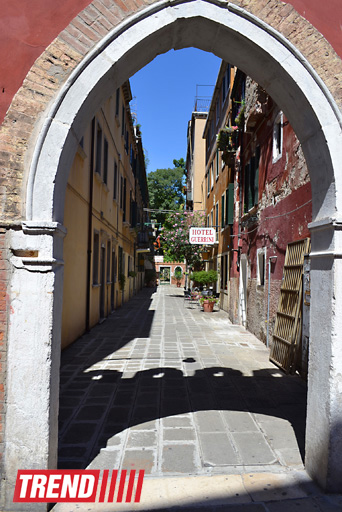The City of Canals is considering a ban on carrying alcohol in public after 7 p.m. in a bid to crack down on tourists partying in the streets, which locals find irksome, Sputnik reports.
With over 20 million tourists visiting the city of Titian and Tiepolo, the city's 55,000 residents have to deal with a lot of trouble just going about their daily lives. Tourists partying deep into the night are only the latest problem to appear on the Venice City Council's radar. Now, they're considering levying fines for transporting alcohol "for consumption" in a public space after 7 in the evening without a "justified reason."
Local police commander Marco Agostini told ANSA Thursday that the law was not designed to target shoppers taking alcohol home from their local supermarket, but rather, "someone who goes around drunk and has a bag with three bottles of beer inside."
The Venetian edition of Milan's Corriere Della Sera newspaper called it "one of the strictest regulations in the entire north-east" of Italy, the BBC reported.
The measure will be voted on next month. Other measures up for a vote include a ban on tourists lying or sitting in undesignated areas, part of an effort to channel visitors through particular city routes.
In the last 70 years, Venice's population has shrunk to one-third of its 1951 count of 175,000, with locals being driven out by high rents and housing shortages inflated by the enormous volume of visitors to the city, which is a UNESCO World Heritage Site.
Tourists stroll in downtown Venice, Italy, Saturday, Nov. 12, 2016. Since 1951, Venice's population has steadily shrunk from 175,000 to some 55,000. Several factors are blamed, including high prices driven by a boom in tourism, the logistics of supplying a carless city, and the erosion of canal-side apartment buildings by lapping waters
Since 2016, Venetians have staged a series of protests and civil disobedience actions designed to raise awareness about the plight of locals, including a banner drop on the famous Rialto Bridge and the erection of a giant suitcase representing their fear of being evicted from their town. In April, residents tore down turnstiles designed to keep tourists separate from locals. Protestor Marco Baravalle said, "It's not the mayor who owns the city. It's not the police or the tourists either," the Independent reported at the time.
"Venice is losing 1,000 residents each year," Matteo Secchi, head of the association venessia.com, told the BBC during a 2016 protest. "We are turning into Pompeii, a town which people come to visit and say it's magnificent, but no-one lives there."
Bret Love, co-founder and editor in chief of Green Global Travel, told Sputnik Friday that last year was the UN's Year of Sustainable Tourism, but it was "also the year that mass tourism finally reached its tipping point, particularly in European cities such as Venice and Barcelona."
"When you look at the math, with 20 million tourists visiting a city of just 55,000 residents, it's a wonder Venice didn't start cracking down on unruly behavior sooner," he said.
"Locals are finally getting fed up with the exploitative infestation that low-budget mass tourism represents," Love told Sputnik by email. "Cheap flights, cheap cruises and all-inclusive resorts have made summer holidays abroad accessible to almost everyone. These companies are getting rich in the process, but it's locals who are paying the price. Many are being priced out of their homes by Airbnb, can't afford the cost of living increases a rise in tourism often creates or simply have their way of life disrupted by irresponsible tourist behavior. In the process, these destinations are losing the soul of what made them so unique in the first place. "
"At the same time, I believe we, as travelers, have an obligation to be more conscious of our impact on destinations, and how we spend our money is a big part of that," he said. Love urged travelers to use tour operators who employ local guides and have sustainability initiatives that benefit local communities. He also suggested travelers patronize local artisans and restaurants, not corporate-owned franchises.
"Yes, government organizations need to enact more policies that stem the surge of overtourism. But we, as individuals, have to do our part if we want to ensure that popular places like Venice maintain their distinctive charm for generations to come."






